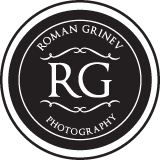Select the Best Wedding Photographer
There’s no shortage of wedding photographers; hiring a photographer can be overwhelming. For most couples, hiring a wedding photographer is their first experience with hiring a professional photographer. So where should you start, and what’s most important?
There’s more to a good wedding photographer than a good camera. Digital cameras have become accessible to most people, including anyone with a mobile phone. Lots of people have digital cameras. Unfortunately, the camera doesn’t tell you about lighting or how to be where you need to be to capture a moment. Weddings move quickly, and you’ll want an experienced wedding photographer who can capture all the key moments without stopping the action to make you pose.
Pictures, Pictures, Pictures
Whether online or in person, it all starts with reviewing portfolios. You need to be able to make a connection with the images, which should convey a story of the wedding day. Some photographers only show their best wedding images from several different weddings. While this is okay as an initial preview, It’s very important to see a larger collection of about 50-60 images from one wedding to see how the complete story was told. It’s also important to see the photographer’s work who will capture your wedding story. Bigger studios sometimes show a general studio portfolio rather than the photographer’s portfolio, which will capture your wedding story. Not only should you see the work of the wedding photographer who will tell your story, but you should also be able to choose your photographer before signing an agreement. Don’t let a studio assign a photographer to you based on some personality test or algorithm. Sadly, some studios do that.
RAW Format – The Ultimate in File Resolution
Raw? As in sushi? No, we are not talking about sushi but rather file format. Professional digital cameras can capture photos in a variety of file formats. RAW produces the best color saturation, more vibrant colors, and superior print quality. The format also allows the photographer more flexibility in post-processing your wedding photos. Unfortunately, not all photographers spend the time required to post-process wedding images, which can be time-consuming. Make sure to ask the photographers you interview what type, if any, post-processing they do. Many studios shoot in JPEG format because it’s more accessible, and there’s less post-production work for them. The images come straight out of the camera “as-is.” Then, it becomes your responsibility to color-correct the images. Also, JPEGs don’t have as much information as digital files, so you can’t make large prints and lose the beautiful, rich colors you want. You don’t want a photographer to hand over the files without post-processing them. Post-processing entails color balance (adjusting the color), touching up the images, and possibly applying creative effects. You can read more about the benefits of RAW format.
Go Local
It’s always great to support local businesses, and that goes for local photography studios versus the big national studios. You will find solo operators, local medium-sized studios, and national studios during your search. Because of the size and scope of the national studios, they generally don’t offer a personalized service. You most likely will be a number. They look like a good value, but you wind up losing quality or service because so many people need to get paid within the studio. Solo operators can be a good option since you get personalized service as the photographer is invested in your wedding. They, however, generally lack a formal infrastructure and backup system. The best of both worlds is a medium-sized local photography studio with several photographers. You get the personalized service and attention you deserve. Since the studio has several photographers, you have the peace of mind of knowing they have backup photographers. With a small boutique studio, there is greater oversight, and the photographers are held to a higher standard since everything they do is reviewed by the head photographer/studio owner. You can read more here about the significant differences between a local photography studio and a national one.
One Photographer or Two Photographers?
There are a variety of factors that go into deciding whether you should have one or two photographers. We offer various scheduling options for our second photographers, whether needed for just part of the day or the entire duration of your event.
A second photographer should be considered if you have a larger wedding (more than 150 people). This is not to say that an experienced photographer can’t handle a large wedding alone.
Consider whether you are getting ready at the exact location. A second photographer might be beneficial if you are simultaneously getting ready at 2 locations. If you decide that one photographer works best for you, we can still capture getting ready at 2 locations as long as ample time is allowed.
In some situations, such as church weddings, some churches restrict the photographer’s ability to move during the ceremony. In this case, a second photographer might be able to provide additional angles. Without a second photographer, one can still capture all the key moments at a church ceremony.
If you decide to have portraits taken during the cocktail hour and also would like coverage of the cocktail hour, a second photographer might be a good idea.
In any of these situations, a second photographer isn’t required but should be considered. Every wedding & couple is different, with many factors to consider. We are always happy to discuss your wedding and make any recommendations.
How much ?
As with any significant purchase, cost will likely be a key factor in your decision. Just don’t let it be the only consideration. You’ll need to consider the above points to find the right fit for your big day. After careful planning, you deserve a photographer who will document your day thoroughly & beautifully.
